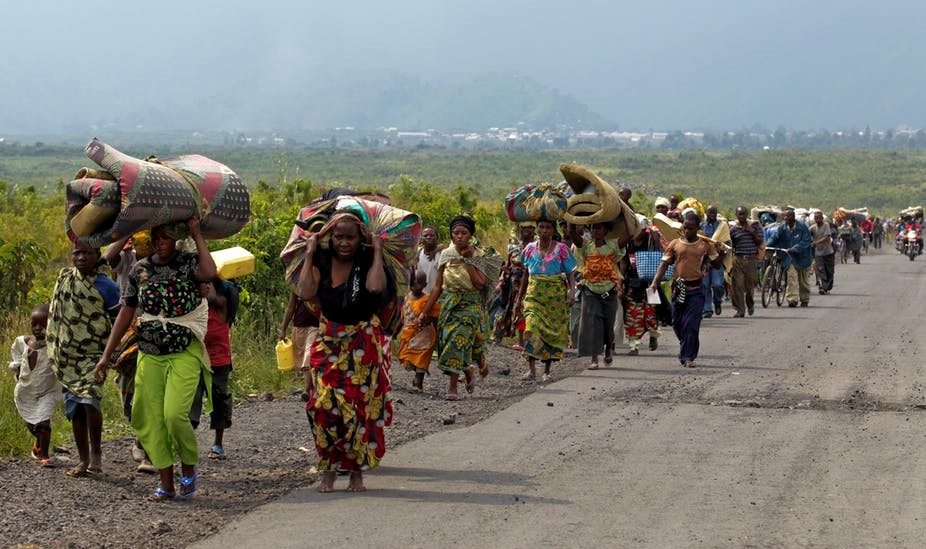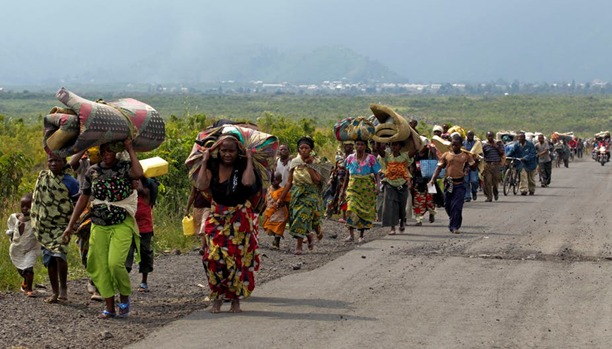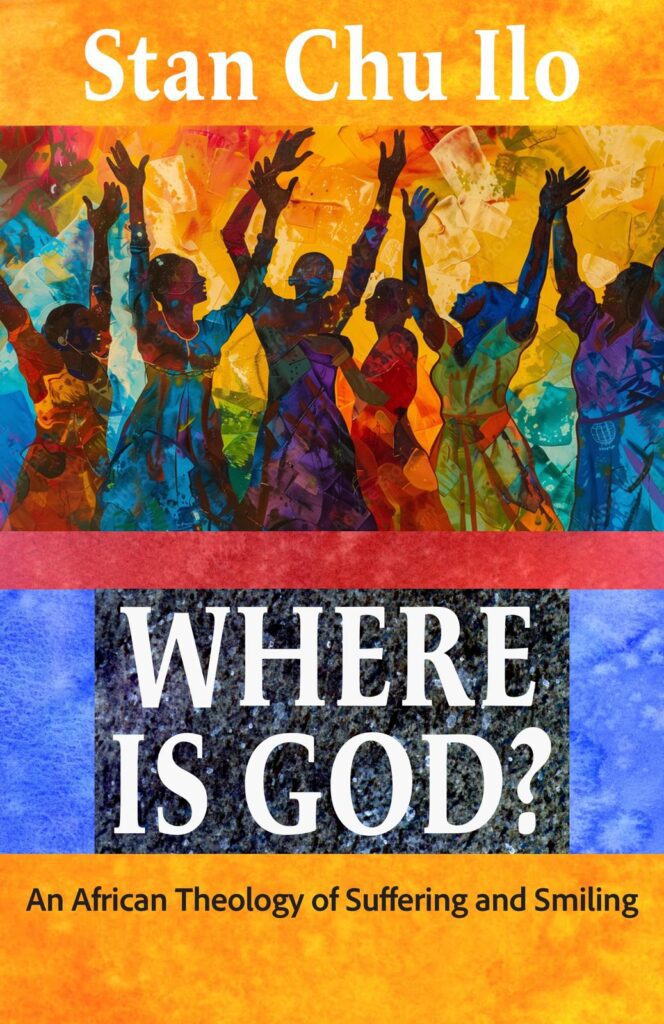
A Reflection on Pope Leo XIV’s Apostolic Exhortation, Dilexi Te (“I Have Loved You”)
Under the scorching Sahelian sun, a mother carries her infant across the sand, fleeing violence that has ravaged her village. She is not just a refugee; she is, in the words of Dilexi Te, “the very flesh of Christ” (DT 3). Throughout Africa, displaced women and children represent both immense suffering and the enduring hope at the core of the Church’s mission today.
In his first Apostolic Exhortation, Dilexi Te, Pope Leo XIV places an unyielding love for the poor at the very center of Christian discipleship. Signed on the Feast of St. Francis of Assisi and published on October 9th, 2025, the document emphasises that true love for Christ is inseparable from love for the poor, reframing poverty not as a misfortune to be pitied but as a sacred encounter with God’s presence among the vulnerable. As the Holy Father writes:
“In this call to recognise him in the poor and the suffering, we see revealed the very heart of Christ, his deepest feelings and choices, which every saint seeks to imitate” (DT 3).
The Wound and the Witness
Across Africa, the weary faces of displaced women and children carry this truth. Conflicts in Sudan, the Sahel, and the Horn of Africa, worsened by drought and desertification, have displaced millions. According to the African Development Bank, over 36,000 Malian refugees, mostly women and children, are currently sheltering in Mauritania. Forced migration has become not only a humanitarian crisis but also a profound moral and spiritual wound in the Body of Christ.

These women and children bear the heaviest burdens: hunger, violence, and social exclusion. Yet in their endurance, they embody a living theology of hope and resilience. As the late theologian Laurenti Magesa reminds us, our humanity is measured by our ability “to make life possible for others.” Through the lens of Dilexi Te, African wisdom, feminist theology, and biblical teaching converge to summon the Church and society alike to rediscover compassion, justice, and the transforming power of love.
African women theologians like Mercy Amba Oduyoye and Musimbi Kanyoro remind us that women’s suffering is often invisible. Oduyoye warns that when theology ignores women’s pain, it distorts the Gospel. In refugee camps across Africa, women and children endure sexual violence, hunger, and rejection. They embody what Pope Leo XIV describes as “the wounded flesh of Christ,” whose tears cry out not only for compassion but also for justice.
The Preferential Option for the Poor
In Dilexi Te, Pope Leo XIV insists that the Church embrace a preferential option for the poor, placing the most vulnerable at the very heart of its mission:
“Wanting to inaugurate a kingdom of justice, fraternity, and solidarity, God has a special place in his heart for those who are discriminated against and oppressed, and he asks us, his Church, to make a decisive and radical choice in favour of the weakest” (DT 16).
This preferential option is neither exclusionary nor optional; it is a moral and spiritual obligation. In the context of forced migration, it demands that women and children be given a central role in both pastoral care and systemic advocacy. Providing shelter, education, psychosocial healing, and protection from exploitation is not merely charity; it is a sacred duty, a concrete expression of Christ’s love in the world.
The Poor as Teachers of the Gospel
Dilexi Te challenges the Church to recognise that the poor are not merely recipients of aid, but living teachers of the Gospel:
“The poorest are not only objects of our compassion, but teachers of the Gospel. It is not a question of ‘bringing’ God to them, but of encountering him among them” (DT 79).
Women and children in forced migration reveal Christ through their resilience, hope, and enduring faith. Their lives transform suffering into a witness of God’s love, shifting the narrative from passive assistance to mutual encounter—where the Church learns from those it seeks to serve.
The Poor as Teachers of the Gospel
Dilexi Te challenges the Church to recognise that the poor are not merely recipients of aid, but living teachers of the Gospel, embodying the very flesh of Christ in their vulnerability:
“The poorest are not only objects of our compassion, but teachers of the Gospel. It is not a question of ‘bringing’ God to them, but of encountering him among them” (DT 79).
Women and children in forced migration carry the flesh of Christ in their suffering and resilience. Through their hope, faith, and endurance, they transform suffering into a living witness of God’s love. Their lives shift the narrative from passive assistance to mutual encounter—where the Church not only serves but learns from those it seeks to uplift. In their bodies and stories, Christ’s presence is made tangible, calling us to reverence, solidarity, and action.
Encountering God in the Vulnerable
Every act of compassion toward displaced women and children becomes an encounter with God:
“Encountering the poor is encountering Christ” (DT 79).
Through acts of hospitality, solidarity, and accompaniment, the Church encounters the vulnerable flesh of Christ present in the lives of the displaced. African spirituality, rooted in Ubuntu, teaches that vulnerability is not weakness but interdependence:
“I am because we are” (Mbiti).
Care for the displaced thus becomes a lived theology of communion, where the dignity of each person is inseparably connected to the dignity of all. The suffering flesh of Christ in the poor prompts the Church to be a compassionate presence that is both transformative and relational, moving beyond mere sympathy to genuine solidarity. In every shared meal, every protected child, every listening ear, the Church encounters God and participates in the redemptive work of Christ among the vulnerable.
Transformative Action Beyond Charity
True discipleship requires more than immediate relief; it calls for transformative action that empowers, restores, and renews. Dilexi Te highlights that the poor are not passive recipients but active participants in renewing the Church and society (DT 87, 104). Programs in refugee settlements that provide women with education, vocational skills, and advocacy platforms embody this vision of love in action.
“No Christian can regard the poor simply as a societal problem; they are part of our ‘family’. They are ‘one of us’” (DT 104).
Such initiatives cultivate agency and hope, moving beyond paternalistic charity to support systemic and spiritual transformation. By honouring the flesh of Christ present in the poor, the Church demonstrates love that is tangible, holistic, and sustainable — rooted in solidarity, justice, and the inherent dignity of every human being. In this way, the Church not only serves but is also itself transformed by the living presence of Christ among the vulnerable.
From Compassion to Systemic Justice
Pope Leo XIV emphasises that authentic love for Christ extends beyond personal acts of charity to confronting the structures of sin and injustice that perpetuate suffering. As he writes, “Wherever poverty persists, the Body of Christ is wounded; wherever love restores dignity, the Church becomes whole again.”
Solidarity, he suggests, requires collective action. African wisdom reminds us that “a single bracelet does not jingle”—proper care for the vulnerable is a shared responsibility. Pastoral compassion must therefore be combined with prophetic advocacy, challenging gender-based violence, human trafficking, and environmental degradation.
As Wangari Maathai insightfully noted, “you cannot protect people while the environment is destroyed.” In this vision, justice and care for creation are inseparable, demanding that the Church and society work together to restore dignity, protect life, and promote lasting transformation.
Hope and Enduring Love
Dilexi Te concludes with a vision of hope:
“The poor evangelise us; they reveal the face of Christ who never abandons His people” (DT conclusion).
Displaced women and children bear witness to this enduring love. They become messengers of the Church itself, demonstrating resilience, hope, and unwavering trust in God amid suffering.
As Stan Chu Ilo writes, “to suffer and smile is to proclaim that evil will not have the last word, because love has already conquered the grave.”
African women who nurture life amid adversity embody this sacrament of hope, calling communities to act with compassion and courage. The dawn of enduring love emerges when societies view migrants not as burdens, but as brothers and sisters to embrace; when policies are shaped by mercy; when borders become bridges; and when faith communities choose accompaniment over abandonment.
Called to Witness Love
In the faces of displaced women and children, we see the first light of a new day — a light born of shared humanity and divine love. Dilexi Te calls the Church and all people of goodwill to live as active witnesses, inviting us to learn from the poor, recognising them as teachers of the Gospel who reveal God’s presence through their resilience and hope. The exhortation urges us to prioritise the vulnerable, embracing a preferential option for the poorest, and to encounter God in the marginalised, so that every act of care becomes a sacred encounter.
Yet, the call extends beyond compassion alone. Dilexi Te challenges us to take transformative action by empowering displaced women and children to actively participate in reviving society and the Church. Through education, skills development, advocacy, and accompaniment, their voices and experiences help forge a more just and loving world. In this journey, we are reminded to nurture enduring hope, recognising that the poor evangelise us and reveal Christ’s face to a world in urgent need of mercy, justice, and love.
Forced migration exposes the deepest wounds of humanity- war, greed, ecological devastation but in these wounds, divine love dwells. The women and children who suffer the most embody the vulnerable face of Christ, calling for our compassionate, courageous, and transformative response.
“I have loved you with an everlasting love” (DT conclusion).
This enduring love calls every Christian, every faith community, and every society to witness, serve, and be transformed in the light of the poor- those who teach, challenge, and inspire us.
In this call, we encounter the vulnerable face of Christ in women and children affected by forced migration. Their lives, marked by resilience, hope, and suffering, reveal God’s presence and invite the Church to a deeper understanding of love, justice, and solidarity. Each story of endurance becomes a living testimony of the Gospel, showing that compassion is inseparable from action and advocacy.
Rooted in Pope Leo XIV’s Apostolic Exhortation, Dilexi Te (“I Have Loved You”), this reflection is further enriched by African women’s theology, prophetic hope, and the spirituality of resilience. The displaced are not just recipients of care; they are active teachers of the Gospel. Their courage, faith, and perseverance not only transform their communities but also challenge the Church itself, urging all believers to respond with compassion and justice.
In bearing witness to their lives, we remember that love is active, enduring, and transformative. By engaging with the most vulnerable, society, faith communities, and the Church are challenged to live out the Gospel in tangible ways, making God’s presence visible in a world often characterised by suffering, exclusion, and injustice.





1 comment
Dilexi Te met au défi l’Église de reconnaître que les pauvres ne sont pas seulement des bénéficiaires d’aide, mais des enseignants vivants de l’Évangile. Cette analyse est capitale car elle bouleverse nos différentes considérations, nos manières d’agir et de comprendre l’Evangile. Félicitations sœur Jane pour cette herméneutique de ce document magistériel.